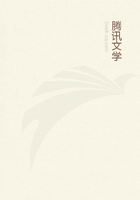
第41章 JASMIN'S VISIT TO PARIS.(2)
Some of the Parisian critics were of opinion that he was immensely overrated.They attributed the success of the Gascon poet to the liveliness of the southerners,who were excited by the merest trifles;and they suspected that Jasmin,instead of being a poet,was but a clever gasconader,differing only from the rest of his class by speaking in verse instead of prose.
Now that Jasmin was in the capital,his real friends,who knew his poetical powers,desired him to put an end to these prejudices by reciting before a competent tribunal some of his most admired verses.He would have had no difficulty in obtaining a reception at the Tuileries.He had already received several kind favours from the Duke and Duchess of Orleans while visiting Agen.The Duke had presented him with a ring set in brilliants,and the Duchess had given him a gold pin in the shape of a flower,with a fine pearl surrounded by diamonds,in memory of their visit.It was this circumstance which induced him to compose his poem 'La Bago et L'Esplingo'(La Bague et L'Epingle)which he dedicated to the Duchess of Orleans.
But Jasmin aimed higher than the Royal family.His principal desire was to attend the French Academy;but as the Academy did not permit strangers to address their meetings,Jasmin was under the necessity of adopting another method.The Salons were open.
M.Leonce de Lavergne said to him:"You are now classed among our French poets;give us a recitation in Gascon."Jasmin explained that he could not give his reading before the members of the Academy."That difficulty,"said his friend,"can soon be got over:I will arrange for a meeting at the salon of one of our most distinguished members."It was accordingly arranged that Jasmin should give a reading at the house of M.Augustin Thierry,one of the greatest of living historians.The elite of Parisian society were present on the occasion,including Ampere,Nizard,Burnouf,Ballanche,Villemain,and many distinguished personages of literary celebrity.
A word as to Jasmin's distinguished entertainer,M.Augustin Thierry.He had written the 'History of the Conquest of England by the Normans'--an original work of great value,though since overshadowed by the more minute 'History of the Norman Conquest,'by Professor Freeman.Yet Thierry's work is still of great interest,displaying gifts of the highest and rarest kind in felicitous combination.It shows the careful plodding of the antiquary,the keen vision of the man of the world,the passionate fervour of the politician,the calm dignity of the philosophic thinker,and the grandeur of the epic poet.Thierry succeeded in exhuming the dry bones of history,clothing them for us anew,and presenting almost visibly the "age and body of the times"long since passed away.
Thierry had also written his 'Narratives of the Merovingian Times,'and revived almost a lost epoch in the early history of France.In writing out these and other works--the results of immense labour and research--he partly lost his eyesight.He travelled into Switzerland and the South of France in the company of M.Fauriel.He could read no more,and towards the end of the year the remains of his sight entirely disappeared.
He had now to read with the eyes of others,and to dictate instead of writing.In his works he was assisted by the friendship of M.Armand Carrel,and the affection and judgment of his loving young wife.
He proceeded with courage,and was able to complete the fundamental basis of the two Frankish dynasties.He was about to follow his investigations into the history of the Goths,Huns,and Vandals,and other races which had taken part in the dismemberment of the empire."However extended these labours,"he says,[1]"my complete blindness could not have prevented my going through them;I was resigned as much as a courageous man can be:I had made a friendship with darkness.But other trials came:acute sufferings and the decline of my health announced a nervous disease of the most serious kind.I was obliged to confess myself conquered,and to save,if it was still time,the last remains of my health."The last words of Thierry's Autobiographical Preface are most touching."If,as I delight in thinking,the interest of science is counted in the number of great national interests,I have given my country all that the soldier mutilated on the field of battle gives her.Whatever may be the fate of my labours,this example I hope will not be lost.I would wish it to serve to combat the species of moral weakness which is the disease of the present generation;to bring back into the straight road of life some of those enervated souls that complain of wanting faith,that know not what to do,and seek everywhere,without finding it,an object of worship and admiration.Why say,with so much bitterness,that in this world,constituted as it is,there is no air for all lungs,no employment for all minds?Is there not opportunity for calm and serious study?and is not that a refuge,a hope,a field within the reach of all of us?With it,evil days are passed over without their weight being felt;every one can make his own destiny;every one can employ his life nobly.This is what I have done,and would do again if I had to recommence my career:I would choose that which has brought me to where I am.Blind,and suffering without hope,and almost without intermission,I may give this testimony,which from me will not appear suspicious;there is something in this world better than sensual enjoyments,better than fortune,better than health itself:it is devotion to science."Footnotes for Chapter XI.
[1]Autobiographical Preface to the 'Narratives of the Merovingian Times.'